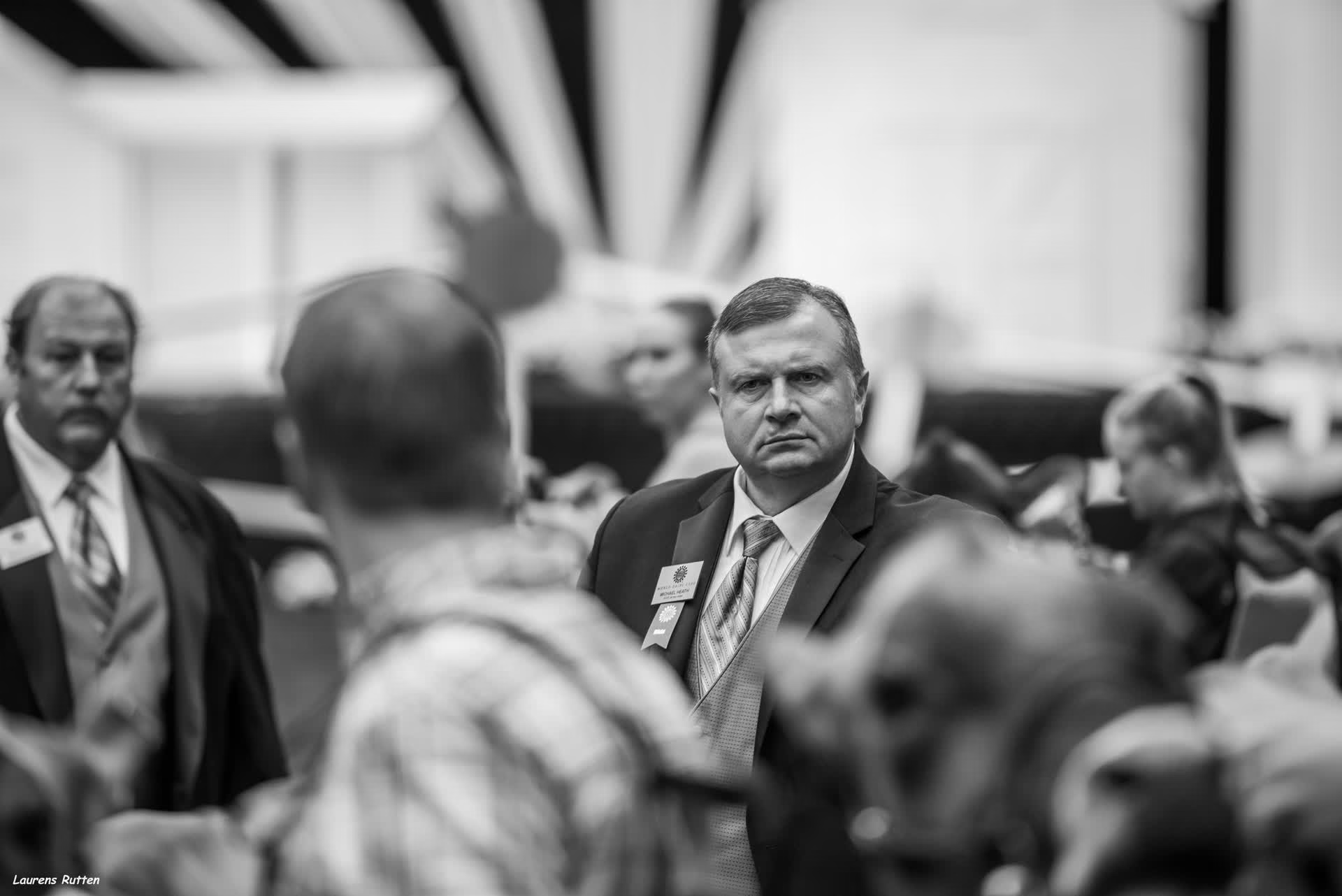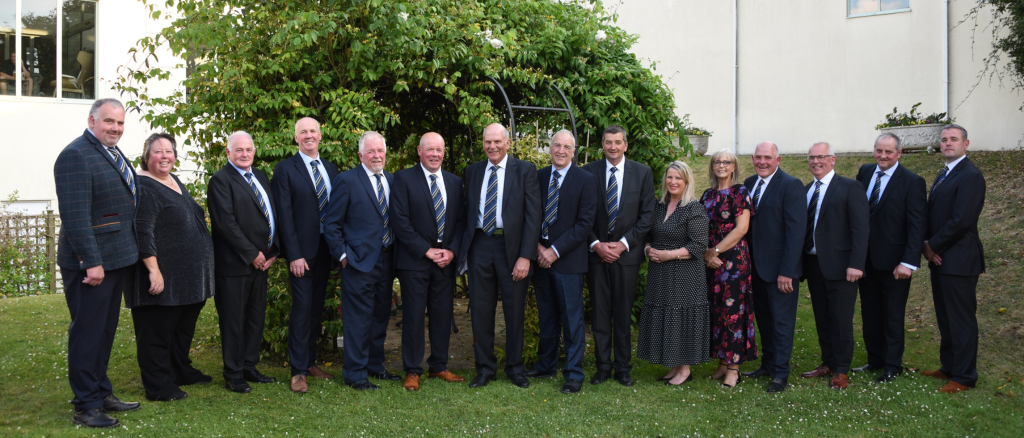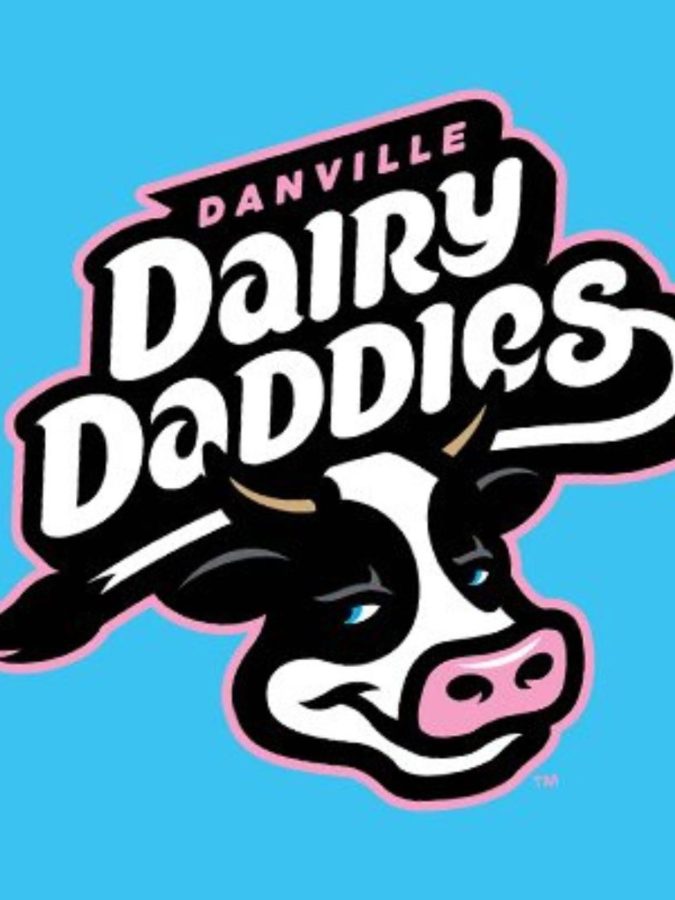Learn about the Michael Heath Overall Fitter Award at the 2024 World Dairy Expo. How will this tribute inspire future dairy generations?

Michael Heath’s sudden death in the spring of 2023 was a profound loss to the dairy community. With his infectious enthusiasm and unwavering dedication, Heath was more than a familiar face at exhibits and fairs; he was a mentor, friend, and irreplaceable member of the dairy community. As we prepare for the 2024 World Dairy Expo, the Michael Heath Overall Fitter Award will be introduced, honoring not just excellence in fitting but also Heath’s unique culture of fellowship and mentoring.
Michael Heath: A Multifaceted Pillar of the Dairy Industry
Michael Heath’s impact on the dairy business is broad and diverse. His progression through numerous roles—from fitter to sales manager, showman, and judge—established him as a community leader. Heath’s fitting ability was unsurpassed; he could make any animal into a showpiece, a talent both contemporaries and newcomers admired.
As a sales manager, Heath’s keen eye for quality and potential guaranteed that top-tier animals got new homes where they could thrive. His engaging presence at sales events increased engagement, created a feeling of community, and fueled enthusiasm. Heath infused every sale with a sense of potential and excitement, making each transaction seem like a victory for all parties involved.
Heath’s status as a showman was also crucial. His extensive knowledge of cattle and superb showmanship made him a frequent presence in winner’s circles throughout the country and the world. His understanding of animal genetics and pedigrees was famous; he recalled the animals and their ancestors, helping to build cow families and generate exceptional bulls.
Heath’s fair and wise judgments gained him significant recognition as a judge. He had an exceptional capacity to detect potential and quality, ensuring that the best animals were given the credit they deserved. Michael had a knack for making shows exciting to watch. From his creative reasons to his dramatic naming of champions, Michael left memories we will never forget.
Memories That Showcase True Mentorship
One of my best recollections of Michael Heath is during a cold morning at the Ontario Spring Show. I was a new exhibitor, still learning to fit and present cattle. Michael greeted me with his typical warm grin and a sparkle in his eye, deftly converting a stressful situation into an opportunity. “Let’s see what you’ve got,” he remarked, examining my heifer. His critique was accurate and insightful, but his patience and genuine concern for my growth struck me the most. He made me feel that my efforts were essential to the industry, not just myself.
Another story that springs to memory occurred during the Paris Fair. Michael had a gift for detecting potential champions and focused on a novice exhibitor who had to control a boisterous calf. Instead of going by, he gave courteous, hands-on assistance. By the end of the day, the calf was strolling peacefully, and the young exhibitor had acquired new confidence and admiration for Michael.
These anecdotes glimpse Michael Heath’s profound impact on everyone he met. His ability to inspire and mentor, whether through casual conversation or more focused guidance, was unparalleled. His passing has left a void in the dairy community, but his legacy lives through the countless lives he touched and the traditions he helped establish.
Building Bridges: Michael Heath’s Unifying Influence on the Dairy Community
Heath’s impact on the dairy sector extended well beyond the confines of his farm. His many excursions to cattle exhibitions, fairs, and farms around the nation expanded his knowledge of cattle. They helped him build an unrivaled network of contacts. At national showcases such as Madison, Harrisburg, and Louisville, his appearance was not only expected but highly anticipated. Heath distinguished himself with his ability to memorize pedigrees and those who worked and developed them. This talent enabled him to build long-lasting bonds, making each contact meaningful and effective.
Furthermore, his trips were not only appearances. He made an impact wherever he went with his sharp eye for quality and extensive understanding of cattle genetics. It is hardly an exaggeration to suggest that Heath understood the genealogy of several herds better than some farmers. This astounding recollection was more than a party trick; it demonstrated his devotion and enthusiasm for the profession, as well as his genuine interest in the individuals who work with the animals.
His approachability and genuine interest created trust and camaraderie within the dairy community. Heath spanned industry and age boundaries by being both a friend and a coworker, affecting numerous lives. This personal connection was at the heart of his legacy, which continues to inspire and lead the community long after he died.
The Birth of a Lasting Tribute
Following Michael Heath’s tragic death in March 2023, the dairy community acted quickly to ensure his legacy was carried on. Heath’s friends and family recognized his enormous effect on the business. They chose to build a unique memorial in his honor. Thus, the Michael Heath Overall Fitter Award was created to honor Heath’s spirit of mentoring, devotion, and outstanding ability in cattle fitting.
Presenting this award at the World Dairy Expo is a significant tribute. The Expo is not just a venue; it symbolizes the pinnacle of success and recognition in the dairy industry. Heath’s iconic Bing, Bang, Boom speech, showcasing his top-tier fitter, judge, and mentor abilities, is a testament to this. The award, presented at such a prestigious event, underscores its importance and reflects Heath’s towering status in the industry.
The Michael Heath Overall Fitter Award: Celebrating Excellence and Dedication
The Michael Heath Overall Fitter Award exemplifies attention to the art of fitting and reflects Heath’s beliefs. This coveted prize will be handed to the best fitter in the event, rewarding their expertise and perseverance. The winner will receive a $1,000 reward, a commemorative plaque, and their name engraved on a permanent award exhibited at the World Dairy Expo headquarters. This permanent memorial commemorates Heath’s legacy and focuses on the young people who exemplify the same enthusiasm and devotion he advocated for his whole life.
A Legacy of Excellence: From 2023’s Triumphs to 2024’s Anticipation
At the 2023 World Dairy Expo, there was a distinct sense of community and rivalry. Among the numerous highlights, Savannah Crack of Quebec received the Overall Top Fitter Award. This award highlighted her extraordinary abilities and was a moving homage to Michael Heath’s enduring legacy. She was given a $500 prize in Heath’s memory, which elegantly memorialized his commitment to youth and achievement in the dairy sector.
As we approach 2024, the anticipation grows. The Michael Heath Overall Fitter Award promises to be even more critical, with the best fitter earning $1,000, a commemorative plaque, and having their name inscribed on a forever medal. This forthcoming tournament will likely attract keen competitors, each motivated by Heath’s legacy and the chance to make history at the World Dairy Expo.
The Bottom Line
Michael Heath’s effect on the dairy sector was substantial and far-reaching, affecting everyone from seasoned experts to aspiring young people. The Michael Heath Overall Fitter Award is a moving memorial to an irreplaceable friend and a sign of his dedication to excellence and guidance. This honor assures that his enthusiasm, devotion, and generosity are forever woven into the fabric of the dairy community.
As we prepare for the 2024 World Dairy Expo, remember Heath’s principles and endeavor to uphold them through our actions. His legacy is more than just a remembrance; it is a call to emulate the same spirit of friendship and effort that he demonstrated. By doing so, we keep his legacy alive, motivating and elevating future generations in the profession. In a world where heroes are sometimes overlooked, Michael Heath’s legacy reminds us of the lasting power of compassion, competence, and community.
Summary:
In an emotional tribute to a genuinely impactful figure within the dairy industry, the Michael Heath Overall Fitter Award will be awarded for the first time at the 2024 World Dairy Expo fitting contest. This award commemorates Michael Heath, a respected friend, showman, and mentor, whose sudden passing in 2023 left the community seeking ways to honor his legacy. Heath’s contributions ranged from developing prominent cow families to supporting young dairy enthusiasts, making this award a fitting homage. Designed to inspire future generations, the award celebrates excellence and dedication in fitting, embodying the spirit of a man who touched countless lives. Heath’s fitting ability was unsurpassed, transforming any animal into a showpiece, and his deep understanding of genetics and pedigrees built trust and camaraderie within the dairy community. The Michael Heath Overall Fitter Award stands as a moving memorial to his dedication and expertise.
Learn more:
- The Stars Shine at the 2014 World Dairy Expo
- Navigate the World Dairy Expo Like a Pro: The Ultimate Guide for Dairy Enthusiasts
- National Dairy Shrine Names Geiger Guest of Honor
 Join the Revolution!
Join the Revolution!
Bullvine Daily is your essential e-zine for staying ahead in the dairy industry. With over 30,000 subscribers, we bring you the week’s top news, helping you manage tasks efficiently. Stay informed about milk production, tech adoption, and more, so you can concentrate on your dairy operations.







 Join the Revolution!
Join the Revolution!






